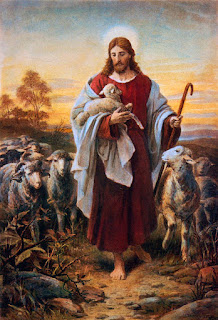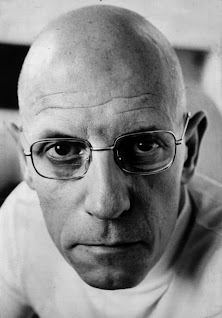aka the laughing hyaena
"I trot, I lope, I slaver, I am a ranger.
I hunch my shoulders. I eat the dead." [1]
I.
There are, as a matter of fact, four distinct species of hyaena. But I suspect that when most peope think of them - if and when they think of them at all - they think of the spotted laughing hyaena.
I also suspect that most people think of them with a shudder and a curl of the lip, finding them an uncanny mix of the creepy and contemptible; cowardly pack hunters that torment their prey, or scavengers skulking round graveyards and feasting on the bodies of the dead.
II.
D. H. Lawrence certainy wasn't a fan. He regarded the hyaena - like the vulture and baboon - as an example of arrested development; an evil creature that obscenely preserves a "fixed form about a voracious seethe of corruption" [2] and which knows no shame.
The howl of the wolf may unsettle him, but it is the laugh of the hyaena that fills Lawrence with fear and horror - that and the "loathsome, cringing, imprisoned loins" [3] that are amost dragged along in the dust and dirt.
The hyaena, says Lawrence, "can scarcely see and hear the living world; it draws back to the stony fixity of its own loins, draws back upon its own nullity, sightless save for carrion" [4].
It's surprising, when one considers his animosity against the poor hyaena, that Lawrence didn't refer back to that ancient belief they were hermaphrodites; i.e., intersexual creatures alternating with fluidity between male and female roles. [5].
For as we know, Lawence was a passionate proponent not only of sexual difference, but sexual dualism:
"Sex surely has a specific meaning. Sex means being divided into male and female. [...] Every single living cell is either male or female, and will remain either male or female as long as life lasts. [...] The talk about a third sex, or about the indeterminate sex, is just to pervert the issue." [6]
The truth of this is essential for Lawrence, as it is for early Christian writers, such as Clement of Alexandria ...
III.
Despite being a Christian theologian and recognised as a Church Father, Clement of Alexandria was heavily infuenced by Greek philosophy and literature, particularly Plato and the Stoics. Fragments of his more obscure writings suggest he was also deeply familiar with Jewish esotericism.
Although we don't know for certain when he was born or when he died, we do know that the moral lessons that Clement takes from the
animal kingdom are invariaby negative; the hyaena, for example, teaches
man what mustn't be done.
Not that he takes seriously the legend concerning its hermaphroditism; rejecting it on the grounds that once the logic of nature
- or, if you prefer, the stamp of creative reason - has determined what
an animal is, it cannot be changed [7]. Thus, the hyaena, cannot switch sexes; nor does it possess two sexes, or a third intermediary sex
between male and female.
However, Clement is obliged to address the fact that the genitalia of the female hyaena closely resembles that of the male; the enlarged clitoris is not only shaped and positioned like a penis, but is capable of erection. The female also possesses no external vaginal opening, as the labia are fused to form a pseudo-scrotum. Traversing the length of the pseudo-penis is a central canal, through which the female urinates, copulates, and gives birth. [8]
Interestingly, although Clement describes the female hyaena's peculiar anatomy in exactly the same manner as Aristotle, he comes to his own conclusion: it must be due to the animal's moral shortcomings. In other words, hyaenas have a body that's arranged in such a queer fashion, because of a defective nature and the fact that, like men, they are prone to lasciviousness ... [9]
IV.
Despite the fact that, as a Lawrentian, I'm supposed to despise them, I'm starting to feel a certain admiration for the hyaena, which have limped on the face of the earth for millions of years.
And this is not just because they challenge certain ideas about sexual dimorphism, but because they also curdle the line of distinction between cat and dog. For athough phylogenetically closer to felines, hyaenas are behaviourally and morphologically similar to canids; they hunt like dogs, for example, but they groom, scent mark, and defecate like cats ...
Perhaps they only laugh because they don't know whether to bark or purr ...
Notes
[1] Edwin Morgan, 'Hyena', in Glasgow to Saturn, (Carcanet, 1973). The verse can also be found in Morgan's Collected Poems, (Carcanet Press, 1990). To read on the Scottish Poetry Library website, click here.
[2] D. H. Lawrence, 'The Crown', Reflections on the Death of a Porcupine and Other Essays, ed. Michael Herbert, (Cambridge University Press, 1988), p. 295.
[3] Ibid., p. 299.
[4] Ibid.
[5] Ovid gives reference to this in Metamorphoses; see 15: 408.
Although Aristotle rejected this belief and few naturalists following him gave the idea any credence, still the queerness of the hyaena was taken as a given and its reputation amongst those who, like Lawrence, read everything (including animal behaviour and anatomy) in moral terms, was irretrievably damaged.
[6] D. H. Lawrence, Fantasia of the Unconscious, ed. Bruce Steele, (Cambridge University Press, 2004), pp. 66 and 126.
[7] Christian ontology - building on its Platonic origins - insists upon the fixed nature of being; there is no transformation of essential forms; one species cannot become another and nor can one sex transition into the other.
[8] In fact, the hyaena is the only placental mammal where females lack an external vaginal opening and have a pseudo-penis instead. This isn't something that seems advantageous; not only does it make mating difficult, but giving birth isn't a barrel of laughs either, often proving fatal for mother and cub (approximately 15% of females die during their first time giving birth and over 60% of firstborn cubs are dead on arrival).
[9] See Michel Foucault, Confessions of the Flesh, trans. Robert Hurley, (Penguin Books, 2021), pp. 19-21.
.jpg)




.jpg)






